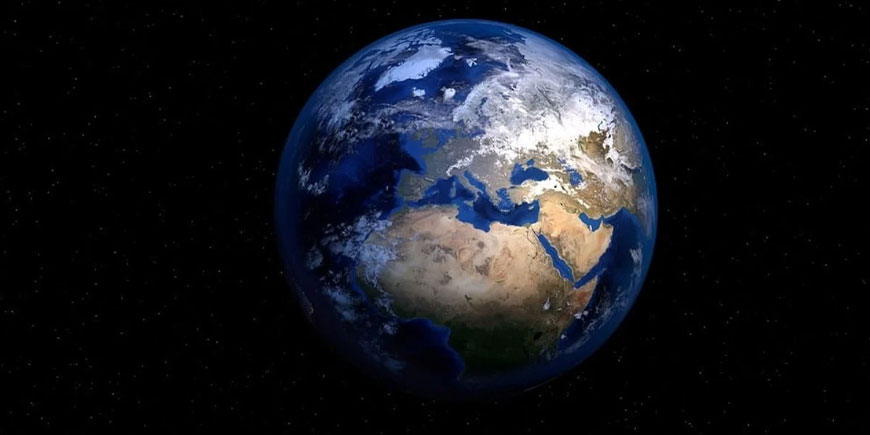For billions of years, the Earth has been spinning in the same direction. But what would happen if it started spinning backwards?
A digital simulation has shown that a reversal of the Earth’s rotation would be an epochal event with catastrophic consequences.
Introduction
The Earth’s rotation is a fundamental phenomenon that affects many aspects of life on our planet. Its rotation, with a period of about 24 hours, has crucial implications for climate, the distribution of water masses and the structure of the Earth itself.
So what would happen if the Earth suddenly started spinning backwards? This is what Florian Ziemen, a scientist and researcher at the Max Planck Institute for Meteorology in Germany, has been wondering about. Ziemen worked with his collaborators and coauthors to study the consequences of changing the Earth’s rotation.
The rotation of the Earth
Earth’s rotation results from its formation and conservation of angular momentum during its evolution. The Earth is thought to have acquired its angular momentum during the accretion process, through collisions with other celestial bodies as it formed about 4.5 billion years ago. This angular momentum has been maintained over time due to the conservation of angular momentum in the Earth-Moon-Sun system and the relative stability of their orbits.

The mechanism of the Earth’s rotation is influenced by several factors, including the distribution of continental and oceanic masses and the gravitational interaction with the Moon and Sun. These factors combine to determine how fast and where the Earth rotates.
The study
By creating a digital model of the Earth, scientists have been able to observe what would happen if our planet reversed its rotation and underwent a so-called retrograde (clockwise) rotation.
As Ziemen told LiveScience, reversing the Earth’s rotation would not change “the size, shape and position of the continents and oceans”, but it would change the flow of currents and winds and how they interact with the continents. This would also lead to completely different climatic conditions than those we are used to today.
Is reverse rotation possible?
Although retrograde rotation may seem like a science fiction concept, there are hypothetical circumstances that could theoretically cause such a phenomenon. Possible causes could include catastrophic collisions with large celestial bodies or significant gravitational perturbations from objects outside the Solar System.
Throughout its geological history, the Earth has also experienced magnetic field reversals. However, these reversals did not affect the direction of the Earth’s rotation, but had significant effects on the orientation of compasses and the Earth’s magnetic field.
The impact on the Earth
If the Earth were to start spinning backwards, the consequences would be dramatic and devastating to many aspects of life on the planet. First, the day-night cycle would be completely reversed. This would have disastrous consequences for ecosystems, the climate and human activities. Regions that are accustomed to sunlight during the day would suddenly be plunged into darkness, while regions that receive sunlight at night would be exposed to the sun. This could have disastrous consequences for plant photosynthesis, the circadian rhythms of organisms and human activities linked to the day-night cycle.
In addition, meteorological phenomena would be significantly altered, with potential changes in wind patterns, precipitation and temperature distribution. Oceanic and atmospheric currents would be disrupted, causing potential global cascading effects. In fact, the Earth’s rotation drives ocean currents, along with atmospheric winds, to produce different climatic effects around the world.
If the Earth’s rotation were reversed, arid deserts would completely cover North America, while the fertile expanses of the Amazon rainforest in South America would be transformed. Central Africa and the Middle East would be home to lush green landscapes.
Catastrophic but unlikely consequences
To sum up: A retrograde rotation of the Earth would be an epochal event with catastrophic consequences for life on our planet. Although such a scenario is extremely unlikely, it is important to understand its scientific implications in order to better understand the workings of our Earth system and its interactions with the rest of the Universe.


